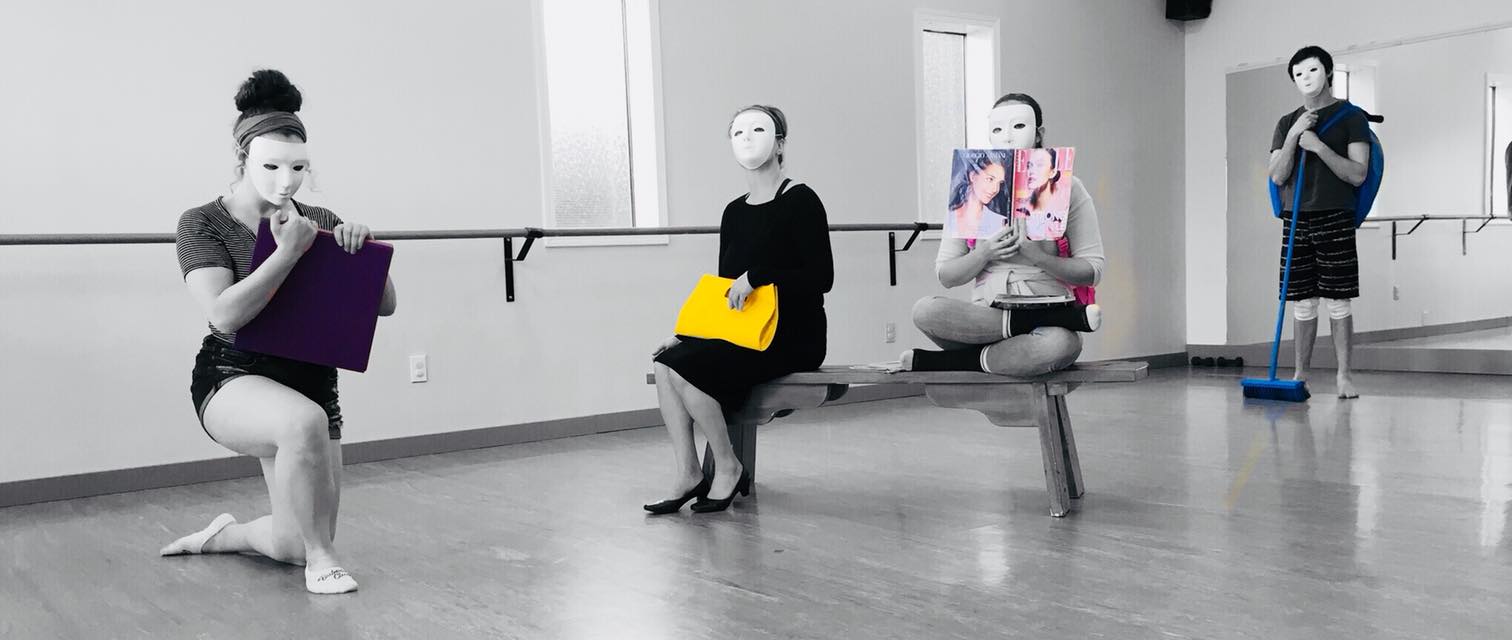Competition: Performing in Pairs
Now is the time of year that many students compete in monologues, duets and group events. It can be a challenge to figure out where to begin – how do you prepare? How do you properly process criticism? We want to help you focus on the competition process and the duet category. Even if you’re not a Thespian, there’s a lot to be learned about performing with another actor.
Before Competition
Performing a successful duet is trickier than performing a successful monologue. It’s not just you and the words. Now there’s interaction, blocking, and depending on another actor. That’s a lot of balls in the air!
Choosing The Perfect Duet
When choosing a scene, look for the following:
- Features both actors. Avoid pieces comprising of a series of monologues for one actor with one line responses for the other.
- Emotional change for both characters. Avoid pieces where only one character undergoes an emotional change. Here’s what to look for:
- Look for a power struggle.
- Look for interaction. Is there lots of back and forth?
- Is there a connection between the characters?
- Look for conflict. Remember conflict is not just two people fighting!
- Look for a well-defined relationship.
- Look for opposing personalities.
- Simple blocking. Your chosen piece should offer a few simple but strong physical choices.
- Read the whole play. How can you properly prepare the scene if you don’t know what’s happened to the characters earlier in the play?
- Make sure it’s the right length. There’s nothing worse doing a great performance and then going over time. Cut the piece to a length well under the maximum.
- Avoid scene books. Why? Certainly, they’ve got great scenes in them. But think about how many other actors have held that same scene book. How many other actors are choosing the exact same scene? Think about how many times the judges have seen that scene. You’re at a disadvantage before you begin if you’re performing a scene the judges have seen twenty or thirty times.
- Finally, LIKE THE SCENE. Especially if you’re in a competition. Dislike of a scene easily leads to a poor performance.
Choosing The Perfect Partner
More often than not your scene partner is your friend, the person beside you in class, the person you’ve dragged into it because your original partner dropped out.
The perfect partner plays a huge part in the success of the scene. You have to work well together, and work toward the same goal. A conflicted team makes success all the more difficult. Think about the following:
- What do you both want? Do you want to work on an interesting character? Do you want to ‘win?’ Do you want to just have fun playing with the scene? Whatever the goal, make sure you’re both on the same page. If you want to have fun and your partner wants to win, how will rehearsals go?
- What’s your experience level? Are you both on the same level? Will it help or hurt the scene if one is more experienced than the other?
- What do you both think of the scene? It does you no good to say ‘it’s fine’ on a scene you don’t really like. Even if your partner is really hot on it!
Finding Your Focus
It happens to everyone. A scene that rocks in practice falls apart during competition. Why? Lack of focus can be the answer. Without focus it’s easy to fall prey to nerves and doubt. Sure some people never get nervous before competition. But so many more do. How do you prepare before you step into the room? Here are some suggestions:
- Create a pre-competition routine. For a week before competition come up with three or four activities that you and your partner will do every day right before you run your scene. Whether it’s running lines, a physical/vocal warm up, a silly game, a handshake, etc. It doesn’t matter so long as you’re consistent. This way on the day of competition, you know exactly what to do in the moments before. You’re not standing around letting nerves get the better of you. It’s all about dealing with nerves!
- Focus on the task at hand. Don’t talk to your friends about what you did last night or where you’re going for lunch. Think about the scene.
- Use visualization. Picture the scene in your head. Go through your actions from beginning to end. Visualize something going wrong in the scene and see yourself fixing it. See yourself succeeding.
- Do not compare your work to others. You’ll be done before you begin if you watch the other scenes in your group and get down on your own performance. Focus on your task. If that means you don’t watch the other scenes, then don’t.
- Write out your first line on a piece of paper. Have it in front of you. Say it over to yourself in your head. Make it a mantra! Many actors blank and panic on their first line.
- Relax. Easy to say but of course hard to do. Focus on relaxing your body and relaxing your breath.
- Relaxing the body: As you sit in the room focus on tightening and loosening your muscles from the top of your head all the way down your body. This can be easily done without disrupting anyone around you.
- Relaxing the breathing: Sit as still as you can with a straight back. Focus on steadily breathing in and out. Count out your inhalations and exhalations so you can’t think about anything else but your breathing.
During Competition
Performing a scene is not like performing a monologue. You have to trust your partner and your partner has to trust you. Make sure you’re both on the same page!
Top 11 Performing Do’s and Don’ts
1. DO know the rules and instructions. There’s no excuse for not knowing the parameters of the competition. Go over them with your partner.
2. DON’T be late! Better yet, be early.
3. DO arrive together. There’s nothing worse for an actor than wondering where their partner is!
4. DO take care with your appearance. You and your partner are a team, and you should dress as a team. If you’re in a nice dress and your partner is in ripped jeans, it looks like you haven’t properly prepared. Further to that, DON’T wear jeans that hang below your butt. DON’T wear belly shirts and mini skirts. DON’T wear clanky jewelry or flip flops. Make it easy for the judges to focus on your acting and not what you’re wearing.
5. DON’T make last minute changes. Your partner comes up to you the morning of the competition and bubbles, ‘I have the perfect blocking for the scene!’ Resist, resist, resist. Keep your scene as you’ve rehearsed it. Start changing the blocking and it’s a quick hop to forgetting your lines at the worst moment. Stick with what you know.
6. DO warm up with your partner. This is a scene, not a monologue. You both need to be in the same head space. The more together you are before competition, the better your performance will be.
7. DO be respectful of the other actors. Remember they’re probably feeling exactly the same way you do! DON’T talk to your partner during other performances. DON’T criticize other performers. DON’T brag to each other.
8. DO be respectful of your partner. If you’re a nervous talker and your partner has not so politely asked you to be quiet, now is not the time to pick a fight! Talk to them about it after the scene. Remember, your partner has their own way of dealing with their nerves.
9. DON’T forget to practice your intro and DO remember who the playwright is! You’ll start the judges off on the wrong foot if you’re sloppy before you’ve started. It makes you look like you don’t care about your acting.
10. DO keep going if things go wrong. What if one of you jumps a page or blanks out? What if you’re the one who blanks? If you stop then the judges have to stop too; they’ll know for sure you’ve made a mistake.
11. DO have fun!
How to Give Constructive Feedback
What if you’re on the other side of the judge’s table? Or, if friends have asked you to give your opinion on their scene?
Giving feedback is a skill. Done correctly, you’ll offer an opportunity for growth and forward movement. Done poorly, you could scar someone for life. I wish I was exaggerating about that, but I’m not. Poorly delivered feedback is extremely damaging and everyone in a position to give feedback must keep this in mind. Giving your opinion puts you in a powerful position. Use that power only for good!
_ So, how do you give feedback without being negative? _
Before the actors perform the scene, find out what their expectations are. Maybe they’ve just been working on their lines and blocking. If that’s the case there’s no point in criticizing their character choices because that’s not been the focus. Find out what they expect and tailor your comments to that. Did they achieve their expectations?
Never say, “I don’t like…” Use “I like” for positive comments and “I would like” for criticisms. So instead of saying:
“I don’t like the way you wandered about the stage.”
You say:
“I would like to have seen you stand your ground. Less wandering, more purposeful movement.”
The second statement not only avoids the negative “I don’t like” but gives a specific action for the actor to consider.
You want the actors to hear what you’re saying. By taking out the negative language you have a better chance of that happening. It’s easy for an actor (or anyone for that matter) to shut down the instant they hear “I don’t like.”
_ But what if you thought the scene was bad and can’t think of anything to say? _
If you’re giving oral feedback right after the scene, find out what the actors thought. “What did you think of the scene?” Perhaps they feel the same way as you. If that’s the case, there’s no point in dwelling on the negative. You want to find a way to help the scene forward. Don’t overwhelm the actors with bad comment after bad comment. That will only discourage them.
So, focus on one element (character, blocking, storytelling, pacing, delivery and so on). Give a specific suggestion for a specific issue.
For example , ask the pair what character exercises they’ve done. Do they know the given circumstances of their character? What have they established regarding the relationship between the two characters? What do they know about the characters’ backgrounds?
Questions are an excellent feedback tool as they, again, avoid the negative and give the actors something to digest and react to. I would strongly suggest that if you are judging a scene that you feel is not going well, ask questions! Why did the actors make the blocking choices they did? What is the intention with the pace of the scene?
Is there any time you can really tell actors what you think?
Giving feedback puts you in a position of power. What is gained by making a pair feel bad about their performance? Unless the actors are purposefully fooling around and wasting everyone’s time during the competition, keep your comments constructive.
After Competition
I promise to uphold the aims and ideals of the International Thespian Society. I am a student of theatre and excellence is my ideal. I promise to perform my part as well as I can; to accept praise and criticism with grace; to cooperate with my fellow Thespians and work for the good of the Troupe; and to share my love of the theatre.
– The Thespian Pledge
After the scene is said and done, you will receive either written or oral comments from the judges. The Thespian Pledge states that a Thespian must accept criticism ‘with grace’ which can be quite difficult to do! Even the most seasoned actor can react poorly to a bad review!
How do you process criticism? How do you separate good from the bad? How do you analyze what a judge is trying to say?
Processing Criticism
- Don’t gloat over a good critique. It has been said, that if you believe your positive reviews that means you have to believe your negative reviews as well. Feel good about a well-executed performance, but don’t go waving your critique around. You never know when the shoe will be on the other foot.
- Know your weaknesses. If you know you’ll react poorly a bad critique then don’t read them! Have a teacher or a friend read the critique and decipher it for you. Trust them to tell you what you need to hear to move forward and improve the scene.
- Deal with your weaknesses. If you have to sit through an oral critique try this technique. Write down everything you hear verbatim. Don’t argue, don’t dispute, don’t make a face. Be professional. Then put the paper away for at least three days. Then when you have some space between you and your performance that’s when you review.
- Never give up. Let’s say your scene didn’t go very well at all and you were judged poorly. Should you just give up acting all together? Of course not! There’s always next time, there’s always next year, there’s always another competition. And if you’re not motivated to try again, then maybe you never wanted to compete in the first place. That’s perfectly legitimate, so long as you’re clear that’s what you’re feeling.
- Be truthful to yourself. You truly know if a scene went well or not. Don’t blame a judge if they re-enforce your own feelings. Always be professional.
- Know what the judges are supposed to be looking for. If you can, read the judging criteria ahead of time. Compare the criteria to the judges comments. Are the judges following the criteria? Are they veering off topic? Are they picking on elements that are irrelevant? A judge that takes the criteria seriously is someone you should pay attention to.
- Judges are human. Remember that a judge’s critique is subjective. They are basing their comments on what they like and what they don’t like. Further to that, a judge can only offer comments based on their own experience. A poor judge will refuse to look beyond their own experience and critique accordingly. Look for clues like, “plays should be this…” Or, “performances should be that…” This are indications that the judge is refusing to accept a performance because it’s different and beyond what they think theatre should be.
- Distinguish between performance criticism and script criticism. Sometimes a judge hates a scene so much, they can’t rise above their feelings and comment objectively on the particular performance. I have a play called Emotional Baggage that has been harshly critiqued in competition (twice!) because it doesn’t have any words. It’s a unique format. Both judges couldn’t wrap their heads around the script, and thus criticized the performance. This is exceedingly unfair to actors. When you see a lot of comments about the script and not so much about the performance, question the validity of the judge’s critique.
- Know when to move on. It’s your right to feel bad over a poor critique. No one likes to be told they didn’t go a good job! Give yourself a day. After that, put the scene behind you and move on. The more you obsess over criticism, the more it will hurt the next time, and the next time and the next. People must deal with criticism their whole lives; find a process that works for you, and you’ll never be hurt by a critic again.



